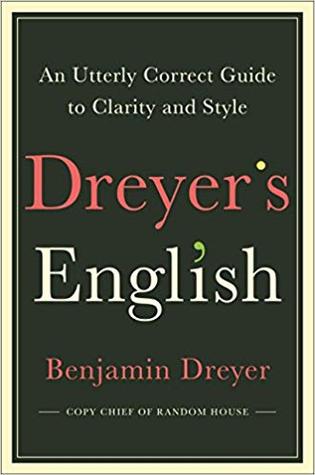For those of you wondering, Benjamin Dreyer is the guy that you’re trying to impress as far as traditional publishing is concerned. He’s the chief copy editor at Penguin Random House, the largest publisher of paperbacks in the world.
When someone like Dreyer releases a book on writing, it becomes a mandatory read for editors and a highly advisable one for writers. Not because writers and editors want to impress the editorial all-father—although they should—but because of how goddamn useful the book proves to be every single page of the way. Each chapter amuses as much as it educates.
Let me present you with the following list. Ridiculously useful if you ask me, because I cannot count the times I was striking out “verys” and “rathers” from peoples writing wishing for a sword instead of a pen.
The Twelve Terms You’d Be Bettter Without
Let me give you a teaser of what you may find on the pages of Dreyer’s English’s (Benjamin, if you’re reading this, note I set the title in italics, but the possessive suffix in roman):
If you can last a week without writing any of what I’ve come to think of as the Wan Intensifiers and Throat Clearers—I wouldn’t ask you to go a week without saying them; that would render most people, especially British people, mute—you will at the end of that week be a considerably better writer than you were at the beginning.
The list of words in question:
- Very
- Rather
- Really
- Quite
- In fact
- Just (in the sense of “merely”)
- So (in the sense of “extremely”)
- Pretty (as in “pretty big”)
- Of course
- Surely
- That said
- Actually
For your own part, if you can abstain from these twelve terms for a week, and you read not a single additional word of this book—if you don’t so much as peek at the next page—I’ll be content.
Well, no.
But it sounded good.
Do Yourself a Favor and Read It
I know you’re short on time and have a priority reading list that would last you well into the twenty-fourth century, but if you’re serious about words and serious about your work, reading Dreyer’s English will reward you with a stronger grasp of grammar, a dose of good humor, and a healthy diet of editorial common sense.
If you liked this article, I would appreciate it if you shared it with someone who may find it helpful.



Thanks, added to my TBR! I’m intrigued by the idea of an “amusing” grammar guide so I have to check it out just on that count. The only other grammar guide I’ve read is the Elements of Style, and that bored me to tears (and some of the rules seemed outdated).
Strunk & White, while basically solid, has been first released in 1918. They revised it later, sure, but a lot of the advice is formal, strict, and unfortunately dated. That’s why books like Dreyer’s English or Pinker’s Sense of Style are a better time investment.